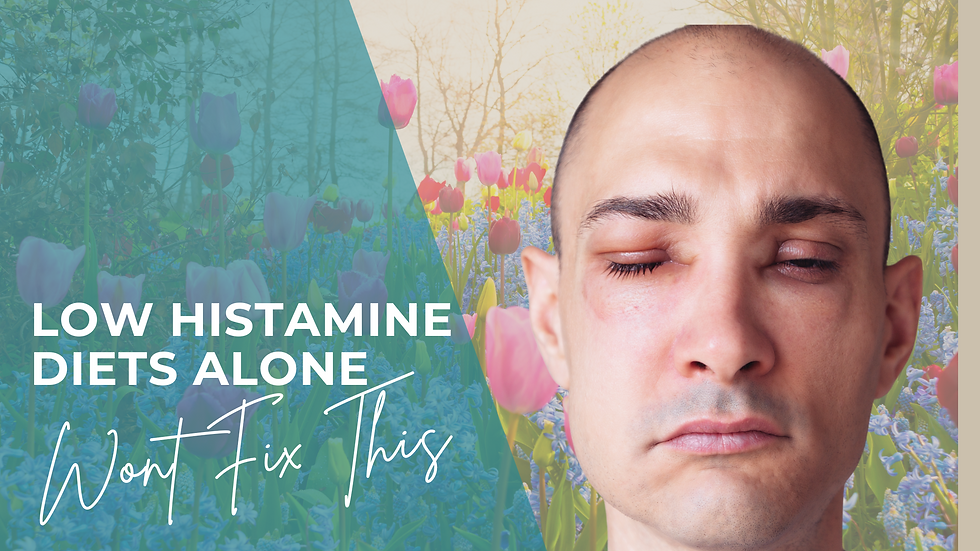Oxytocin, the Love Hormone: How Lactobacillus Reuteri and Your Gut Shape Connection
- Dig Nutrition
- Feb 8
- 3 min read
Updated: Feb 9

“Love is not just a feeling; it’s a biochemical masterpiece.”
When we think of oxytocin, often called the "love hormone," we imagine hugs, warm embraces, and feelings of connection. But this powerful hormone does more than foster emotional bonds—it plays a critical role in everything from stress regulation to social behavior and even physical healing. What might surprise you, though, is that your gut microbiome has a say in how much oxytocin you produce. And at the forefront of this connection is a remarkable microbe: Lactobacillus reuteri.
Oxytocin: The Connection Hormone
Oxytocin is a neuropeptide produced in the hypothalamus and released by the pituitary gland. It’s best known for its role in bonding—from maternal-infant attachment to romantic relationships. But oxytocin’s influence goes far deeper:
Stress Regulation: It counteracts the effects of cortisol, your body’s primary stress hormone, promoting a sense of calm.
Social Interaction: It enhances trust and connection, making us more open to forming relationships.
Physical Healing: Oxytocin accelerates wound healing by reducing inflammation and promoting tissue repair.
The Gut-Oxytocin Connection
Enter Lactobacillus reuteri, a superstar probiotic that has garnered attention for its role in boosting oxytocin levels. Dr. William Davis, author of Super Gut, highlights L. reuteri as a key player in supporting emotional well-being and fostering deeper connections.
Here’s how it works:
Neural Pathways: L. reuteri interacts with the vagus nerve, the gut-brain superhighway, to stimulate oxytocin production in the brain.
Immune Modulation: By reducing gut inflammation, L. reuteri creates a healthier environment for optimal hormonal signaling.
Microbial Metabolites: This microbe produces compounds that directly influence brain chemistry, fostering a sense of well-being.
Building a Gut That Nurtures Connection
If oxytocin is the love hormone, then Lactobacillus reuteri is its microbial matchmaker. Here’s how you can support this connection:
Incorporate Fermented Foods
Foods like yogurt, kefir, and sauerkraut can boost beneficial bacteria, though L. reuteri is not always present in these. Look for specific probiotic supplements if you want targeted support.
Prioritize Prebiotics
Feed your beneficial microbes with prebiotic-rich foods like garlic, onions, asparagus, and bananas. Prebiotics create the perfect environment for L. reuteri to thrive.
Consider Supplementation
L. reuteri supplements are widely available and often contain specific strains shown to influence oxytocin production. Look for strains like DSM 17938 or ATCC PTA 6475.
Practice Stress Reduction
Chronic stress can disrupt the gut-brain axis and suppress oxytocin release. Mindfulness practices, breathwork, and regular movement can help maintain balance.
Stay Consistent with Fiber
High-fiber diets not only support microbial diversity but also stabilize blood sugar, which indirectly supports oxytocin production by reducing stress.
The Nervous System’s Role
The vagus nerve, a critical component of the parasympathetic nervous system, plays a central role in the gut-oxytocin connection. Stimulating vagal tone through practices like deep breathing, cold exposure, or even singing can enhance communication between the gut and brain, promoting oxytocin release.
Practical Ways to Boost Oxytocin Naturally
Hugs and Touch: Physical contact directly stimulates oxytocin release.
Eye Contact: Meaningful eye contact fosters trust and connection.
Shared Meals: Eating together encourages social bonding, while gut-friendly foods support microbial health.
Laughter: It’s not just good for the soul; it’s great for oxytocin too.
Final Thoughts
Oxytocin isn’t just about feeling warm and fuzzy; it’s a cornerstone of human connection and well-being. And as science continues to uncover the profound relationship between the gut and the brain, it’s clear that microbes like Lactobacillus reuteri hold the key to unlocking our full potential for connection. By nurturing your gut, you’re not just supporting digestion—you’re fostering deeper relationships, emotional resilience, and a life brimming with connection.
So, the next time you share a meal, take a moment to appreciate the microbes that make it all possible. After all, love may begin in the heart, but it’s sustained by the gut.





Comments